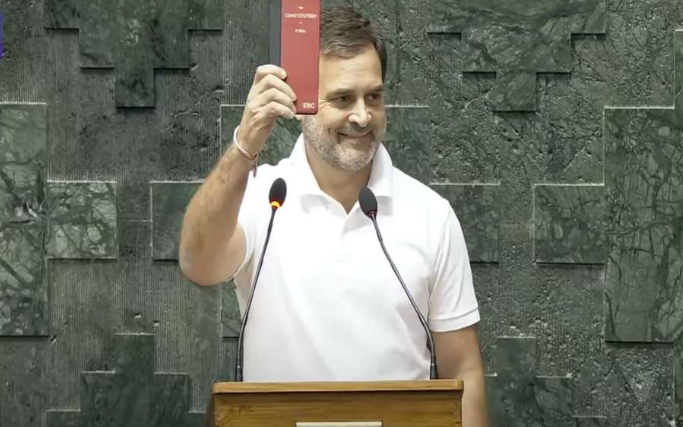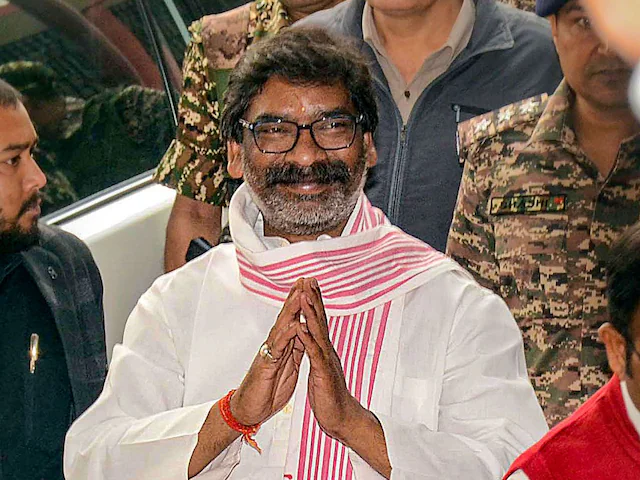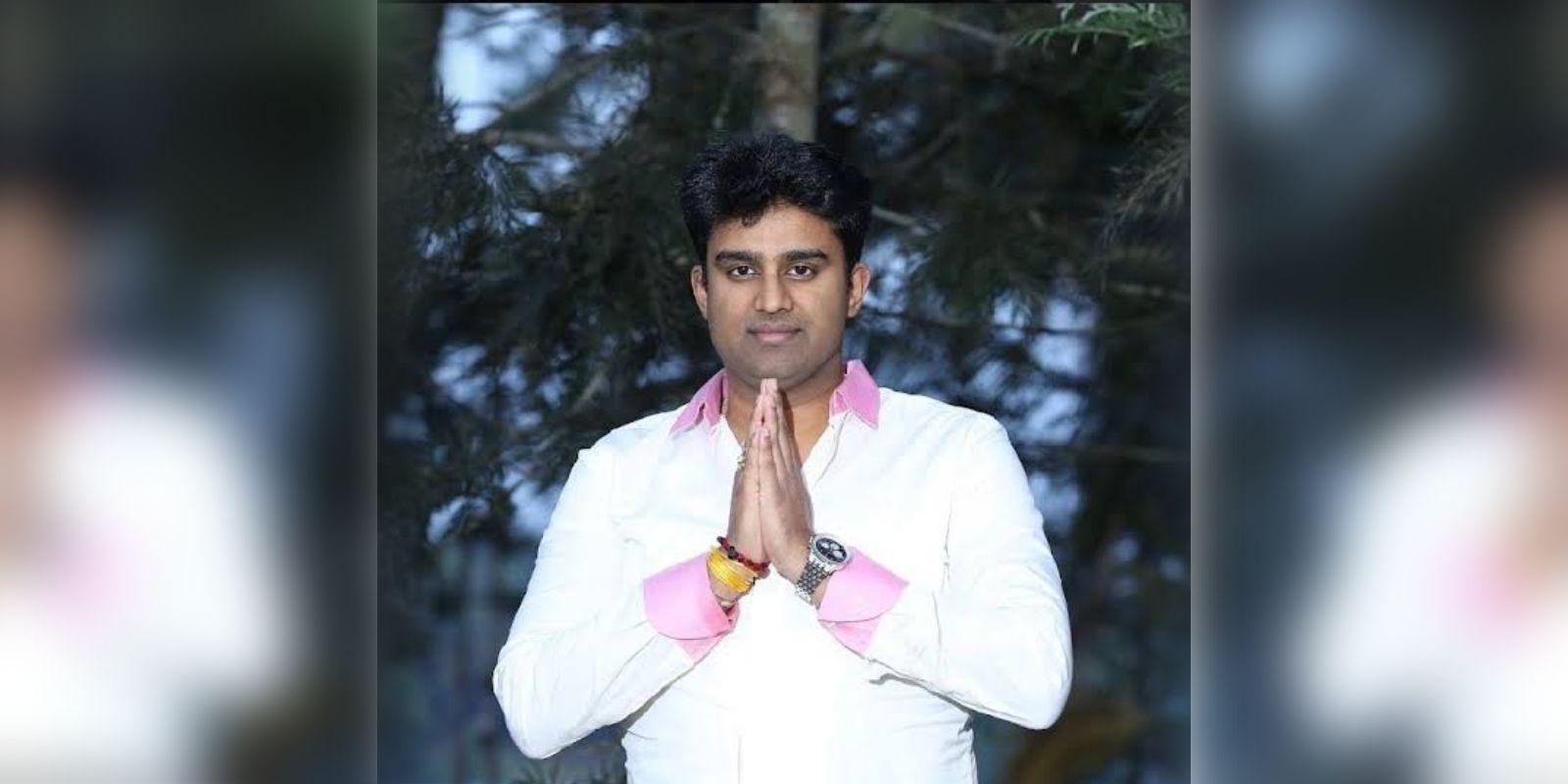Congress leader Rahul Gandhi took the oath as Lok Sabha MP, holding the Constitution of India and chanting ‘Jai Hind, Jai Samvidhan’. The Rahul Gandhi oath ceremony was met with applause from the Opposition benches. The first session of the 18th Lok Sabha includes the upcoming Speaker election between BJP’s Om Birla and Congress’ Kodikunnil Suresh.
Swearing-In Ceremony
On Tuesday, Congress leader Rahul Gandhi took the oath as a Member of Parliament (MP) for the Lok Sabha, prominently holding the Constitution of India in his hand. This symbolic gesture during the Rahul Gandhi oath ceremony underscored his commitment to democratic values and principles. As he concluded his oath, he passionately chanted ‘Jai Hind, Jai Samvidhan,’ which translates to ‘Hail India, Hail the Constitution.’ The Opposition benches responded enthusiastically, welcoming his return with applause and slogans.
Rahul Gandhi’s oath-taking was part of a broader ceremony for newly elected representatives, held on June 24 and 25, marking the beginning of the first session of the 18th Lok Sabha. The event commenced with Prime Minister Narendra Modi and his council of ministers taking their oaths on Monday, setting a formal tone for the new legislative session.

Political Implications of Rahul Gandhi Oath
Rahul Gandhi’s oath as MP arrives at a critical juncture in Indian politics. His decision to display the Constitution and use specific slogans is seen as a reaffirmation of democratic norms and a subtle critique of recent political developments. This act during the Rahul Gandhi oath ceremony is particularly significant given ongoing debates about constitutional values in India.
The enthusiastic response from the Opposition benches highlights the support Rahul Gandhi commands within his party and among allied factions. His return is viewed as a morale booster for the Opposition and a potential catalyst for more vigorous political debate and action in the upcoming sessions.
Upcoming Lok Sabha Speaker Election
The election for the Lok Sabha Speaker is scheduled for June 26, marking a crucial event in the parliamentary calendar. BJP’s Om Birla and Congress’ Kodikunnil Suresh will contest for the position. This election is particularly notable as it represents the first direct contest for the Speaker’s role since Independence, reflecting the intensified political climate.
The necessity for an election arose after the NDA (National Democratic Alliance) and the INDIA bloc (a coalition of opposition parties) failed to reach a consensus on the Deputy Speaker post. Traditionally, this position has been offered to the Opposition as a gesture of bipartisanship. However, negotiations led by BJP’s Rajnath Singh with the Opposition did not yield an agreement, necessitating a formal election for the Speaker.
Historical Context and Significance
The Speaker of the Lok Sabha plays a vital role in the parliamentary process, responsible for maintaining order, ensuring smooth conduct of business, and upholding the house’s rules and procedures. The election of the Speaker is thus a pivotal moment, indicative of the broader political dynamics and power structures within Parliament.

Image Source : SANSAD TV
The contest between Om Birla and Kodikunnil Suresh gains additional significance in the current political scenario. Om Birla, the incumbent Speaker, seeks re-election, while Kodikunnil Suresh represents the Opposition’s efforts to assert greater influence and representation within parliamentary proceedings.
Broader Political Landscape
The upcoming session of the 18th Lok Sabha promises to be a period of intense legislative activity and political maneuvering. Key issues likely to dominate the agenda include economic reforms, social policies, and governance challenges. The election of the Speaker and the allocation of other key parliamentary positions will set the tone for legislative priorities and the nature of political debates.
Rahul Gandhi’s proactive stance and symbolic gestures during his oath-taking are expected to play a significant role in shaping the Opposition’s strategy and responses to the ruling party’s initiatives. His actions during the Rahul Gandhi oath ceremony reflect a broader narrative of asserting democratic principles and accountability, themes that resonate deeply within the current socio-political context.
The Rahul Gandhi oath as MP and the upcoming Speaker election highlight the dynamic and vibrant nature of India’s parliamentary democracy. These events are not merely procedural but carry deep political significance and implications for the future direction of legislative and political developments in the country. As the 18th Lok Sabha session unfolds, the actions and decisions of key political figures like Rahul Gandhi will be closely watched, shaping the trajectory of Indian politics in the coming years.
For further insights and comprehensive content, please visit our homepage



